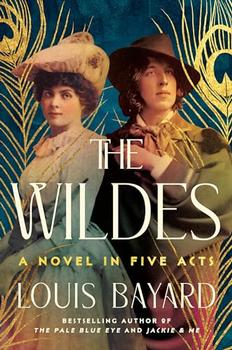Book Club Discussion Questions
Want to participate in our book club? Join BookBrowse and get free books to discuss!
Please be aware that this discussion guide will contain spoilers!
-
The Wildes is described in its subtitle as "a novel in five acts." How does that description color your reading experience? Does the book feel closer to a novel or a play?
-
The prologue consists of a love letter from Oscar Wilde, who, time and again, refers to Constance as "my love." Is he being sincere? Has the meaning of that endearment changed over time? What does love mean to Oscar?
-
The nickname Bosie is derived from "Boysie." How does this nickname inform your perception of Lord Alfred Douglas? What about his character remains boyish throughout the book?
-
Why does it take Constance so long to grasp what is going on between her husband and Lord Alfred? What does that say about the times in which they lived and the expectations of a Victorian wife?
-
Oscar's greatest comedy, The Importance of Being Earnest , was written as his own life was falling apart. What does this say about the relationship between comedy and tragedy?
-
In the novel, Constance is suffering from a then-mysterious disease, which Dr. Bossi diagnoses as a uterine disorder. What do you suspect she had? How might Dr. Bossi's diagnosis and treatment be different today?
-
Constance seems to be attracted to powerful mother figures like Lady Wilde and Lady Brooke. How do these women shape Constance's own identity as a mother?
-
The novel travels from Norfolk to Liguria to northeast France to London. What effect do these changing locales have on the story? Do you have a favorite setting?
-
The novel 's point of view shifts from Constance to Cyril to Vyvyan, then back again to Constance. Who do you think is the true protagonist of this story? Why?
-
When we first meet Cyril as an adult, he is engaged in the act of killing another man. What about his life has led him to this juncture? And how does the experience of
watching a man die up close change him?
-
When we first meet Vyvyan as an adult, he is engaged in the act of watching a play. How does this comport with his own childhood experience? How is he changed by the events that follow?
-
Where does Arthur Clifton fit into the story of the Wilde family? Would you say he acts as an alternative husband for Constance, or perhaps an alternative father for the boys? Why or why not? And what of Florence Clifton? What options would have been available to a divorced wife in Edwardian England?
-
In the final act, Constance gets another chance to arrange the Wildes' future. How likely would that alternative future have been? How would the Wilde legacy be different today? What does this reimagining-and fiction, more broadly-allow that history does not?
-
What did you know about Oscar Wilde and the events leading up to his trial and imprisonment before reading The Wildes? How has your perspective changed after reading the novel?
For the full book club kit please refer to the publisher's page.
Unless otherwise stated, this discussion guide is reprinted with the permission of Algonquin Books. Any page references refer to a USA edition of the book, usually the trade paperback version, and may vary in other editions.
